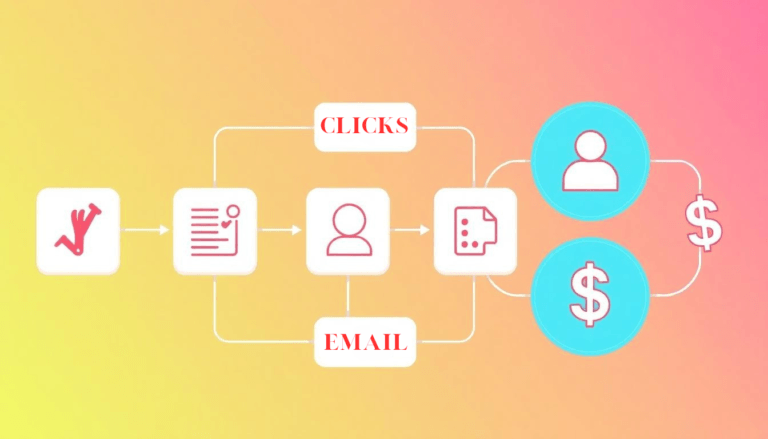Building Trust And Credibility: Strategies For Personal And Professional Success
Building Trust and Credibility: Strategies for Personal and Professional Success
Trust and credibility are the backbone of any successful personal or professional relationship. They determine how people perceive your intentions and expertise. Without them, effective communication, leadership, and even sales become challenging. Building trust isn’t just about keeping promises—it’s about showing consistency and authenticity in every interaction. Establishing credibility involves being transparent, reliable, and knowledgeable. These qualities strengthen connections and pave the way for long-term success and growth.
Key Takeaways
- Trust is built through consistent actions, transparency, and honoring commitments.
- Credibility comes from expertise, reliability, and authentic communication.
- Open communication and empathy strengthen personal and professional relationships.
- Admitting mistakes and taking responsibility enhances trust and respect.
- Consistency is essential; mixed signals quickly erode reliability.
- Supporting others’ growth fosters loyalty and deeper connections.
- Leaders earn trust by modeling behavior, being accountable, and communicating clearly.
- Avoid common pitfalls like overpromising, lack of transparency, and inconsistency to maintain trust and credibility.
Understanding Trust and Credibility
When it comes to building stronger relationships, both trust and credibility play vital roles. These concepts may seem similar at first glance, but each serves a unique purpose. Trust is emotional—it’s how people feel about your reliability and intentions. Credibility, on the other hand, is about the belief in your knowledge and expertise. Together, they lay the foundation for meaningful connections in both personal and professional settings.
What is Trust?
Trust happens when someone believes in your reliability and integrity. Think of it as the glue that holds relationships together. People who trust you are more likely to collaborate, commit, and communicate openly. For example, imagine lending a friend money. You’re confident they’ll pay it back because they’ve earned your trust in the past. This same principle applies to business. Whether you’re managing a team or serving customers, trust helps create a supportive and cooperative environment.
Trust takes time to build but can be shattered in seconds. Consistency is key. Upholding your promises, being transparent, and genuinely caring about others’ needs are all essential steps. People don’t just want to hear the words “trust me”; they want to see actions that back it up. Without trust, achieving long-term success in any relationship is nearly impossible.

What is Credibility?
Credibility is the perception that you are both knowledgeable and sincere. It’s what makes your words and actions believable. Unlike trust, which comes from the heart, credibility stems from the head. People assess credibility based on your expertise, track record, and how you present yourself. For instance, if you’re pitching an idea at work, colleagues will take you seriously only if they believe you know your stuff.
Credibility isn’t just about knowing facts—it’s about being authentic. Imagine a CEO addressing their team about company goals. If they seem insincere or unprepared, their message will fall flat. On the other hand, a leader who communicates clearly owns their mistakes and backs up their claims with data fosters credibility. In many ways, credibility supports leadership by making others more willing to follow and believe in your vision.
To enhance credibility, focus on delivering accurate information, staying consistent, and admitting when you don’t have all the answers. People respect those who are honest and willing to learn, even if they’re not perfect. At the end of the day, credibility is about proving you’re worth listening to.
Building Trust Through Actions
Actions speak louder than words, especially when it comes to building trust and credibility. While promises and words may create expectations, consistent actions are what truly solidify trust. Whether you’re running a business or nurturing personal relationships, people need to see your reliability in real, tangible ways. Below, we’ll explore practical steps to build trust through your actions.
Deliver on Promises
When you make a promise, fulfilling it isn’t optional—it’s essential. Consistently keeping commitments shows others that they can count on you. Whether it’s meeting deadlines, showing up on time, or delivering results, every fulfilled promise builds a layer of trust. On the other hand, missed commitments chip away at credibility like a leaky faucet eroding a stone.
It’s not about doing everything perfectly—it’s about doing what you say you’ll do. For businesses, this could mean delivering quality products to your customers or following through on customer service promises. If your team or clients know they can rely on you, they’ll trust you more deeply over time.
Be Transparent
Transparency eliminates misunderstandings and strengthens trust. When you’re open about your processes, intentions, or even challenges, it shows honesty and respect. Think about how frustrating it is when someone hides important details—this often leads to suspicion and doubt.
For example, if a company is upfront about shipping delays, customers may be disappointed, but they’ll likely appreciate the honesty. Transparency doesn’t mean oversharing but rather providing the right amount of clear, honest information. This applies to businesses, relationships, and professional environments alike.
Admit Mistakes
No one is perfect, and pretending to be can backfire. Admitting mistakes isn’t just about facing reality—it demonstrates honesty and earns respect. Think about it: Would you trust a leader who skirts accountability or one who says, “I got this wrong, and here’s how I’ll fix it”?
Mistakes are opportunities to show responsibility and grow. For instance, if a project doesn’t go as planned, acknowledging the error and outlining a plan of action builds both trust and credibility.
Foster Open Communication
Open communication is the lifeline of trust. It’s not just about talking—it’s about listening, too. When people feel heard, they’re more likely to trust you. Active listening, asking for feedback, and encouraging dialogue create an environment where trust thrives.
This might look like gathering customer feedback and acting on it for businesses. It could mean having honest conversations where both sides feel valued in personal relationships. When communication is a two-way street, trust follows naturally.
Establishing Credibility
Building trust and credibility begins with showing that you’re knowledgeable and genuine. Credibility isn’t simply given; it’s earned through consistent actions and clear communication. These qualities reassure people that you’re reliable and worth their time. This section explores steps you can take to establish your credibility effectively.
Demonstrate Expertise
To be credible, you need to show others that you know your stuff. Sharing your knowledge and skills openly is one of the best ways to demonstrate expertise. This could mean publishing articles, hosting webinars, or sharing insights on social media.
Think about it like teaching. A teacher earns respect by clearly explaining subjects they are passionate about. In the same way, showing expertise in your niche—whether it’s marketing, cooking, or tech—earns trust. Answering questions and staying up-to-date on industry trends also positions you as a go-to resource. People are more likely to trust someone who consistently provides helpful and accurate information.
Share Reliable Sources
Information holds weight only when it’s backed by facts. Using high-quality data or proven research to support your claims builds credibility. People are more likely to trust what you say if you can point to reputable studies or well-known authorities in your field.
For example, let’s say you’re writing about content marketing strategies. Linking to reliable sources, such as Why High-Quality Content Matters for Your Website’s Success, can reinforce your argument. It also shows that you’ve done your homework and aren’t just sharing opinions. Fact-based content builds trust and positions your brand as professional and informed.
Use Real-Life Examples
Nothing humanizes your message like real-life examples or case studies. They make your insights relatable and prove that your ideas work in real scenarios. Whether it’s a testimonial from a happy customer or a case study about a successful project, examples make your claims more tangible.
Think of it like storytelling. A well-told story captures attention and makes concepts easier to understand. Sharing how your product helped someone or how you solved a complex problem builds emotional connections. It reassures your audience that you’re trustworthy because they can see proof of your capabilities.
Seek Feedback
Asking for feedback shows that you’re open to improvement and value others’ opinions. It’s a simple gesture that can greatly enhance your credibility. You demonstrate accountability and respect when you listen to feedback and take action based on it.
For instance, businesses often gather customer reviews to improve products or services. When clients see their input being implemented, they feel valued. In personal relationships, being open to critique fosters deeper trust. Seeking feedback isn’t about admitting weakness—it’s about showing that you’re committed to growth.

Photo by Ketut Subiyanto
Strengthening Relationships with Trust and Credibility
Building trust and credibility isn’t just about saying the right things—it’s about doing the right things consistently. Whether you’re leading a team, working with clients, or nurturing personal bonds, trust acts as the glue holding relationships together. When paired with credibility, it creates a solid foundation for deep, lasting connections. Let’s explore actionable ways to foster these qualities.
Encourage Collaboration
Teamwork thrives on trust. When people feel they can rely on each other, collaboration becomes seamless. Creating an environment where everyone’s input is valued strengthens group dynamics and builds individual credibility. For example, encouraging open discussions and brainstorming sessions makes team members feel heard and respected.
Collaboration also means sharing the workload fairly. Imagine a team tackling a critical project. If one person consistently steps up to help others, it fosters mutual trust. Similarly, balancing positive and constructive feedback ensures everyone feels supported.

Photo by Kindel Media
Maintain Consistency
Consistency is the bedrock of reliability. When your actions and decisions align over time, people know what to expect from you. This predictability builds trust and reinforces your credibility. Think of it like a favorite restaurant—you return because you trust the food and service will be excellent every time.
Inconsistencies, however, can quickly erode trust. Whether it’s showing up late for meetings or frequently changing opinions, mixed signals create doubt. To avoid this, strive to follow through on commitments and stay true to your values. For businesses, this could mean maintaining consistent communication with customers, such as through regular updates or transparent policies.
Display Empathy
Empathy deepens connections by showing others that you genuinely care about their feelings and perspectives. When you take the time to understand someone’s situation, you’re not just listening—you’re building trust. Think about a time when someone really “got” you. That feeling of being understood likely strengthened your relationship.
In professional settings, empathy could involve acknowledging a colleague’s challenges or celebrating their wins. A simple gesture, like asking how someone feels, can go a long way. People want to feel valued and appreciated, and empathy creates an emotional bridge that fosters genuine trust.
Support Growth
When you invest in others’ success, you naturally earn their loyalty. Whether it involves mentoring, providing resources, or encouraging development, supporting growth helps people see you as a trustworthy ally. Imagine a manager who actively helps their team members achieve career goals. This not only boosts morale but also strengthens the relationship.
For businesses, this could mean offering clients educational resources or personalized solutions. By supporting others, you create a foundation of mutual respect and trust.
The Role of Trust and Credibility in Leadership
Trust and credibility are essential components of effective leadership. A leader’s ability to inspire, guide, and unite people largely depends on these two pillars. Without them, even the most talented leaders may struggle to gain support or achieve goals. Let’s explore how leading by example, being accountable, and communicating effectively can solidify trust and credibility in leadership.
Lead by Example: Illustrate How Modeling Desired Behaviors Earns Trust
Actions speak louder than words, especially when you’re in a leadership role. People look to leaders not just for direction but as a standard to emulate. If you want to build trust, start by consistently demonstrating the behaviors you expect from others.
For example, if you value punctuality, attend meetings on time. If collaboration is key, actively participate in teamwork and encourage input from everyone. This kind of alignment between what you say and what you do sends a clear message: you practice what you preach.
Leaders who lead by example create an environment of trust and respect. It shows that you’re not asking anyone to do something you’re unwilling to do yourself. Think of it like a coach who trains alongside their team; their actions inspire and motivate, fostering loyalty and belief in their vision.

Photo by Tima Miroshnichenko
Be Accountable: Explain How Taking Responsibility Shows Strength and Integrity
Accountability is a cornerstone of credible leadership. When leaders own their mistakes and take responsibility for outcomes—good or bad—they demonstrate integrity and strength. This kind of transparency builds trust, showing others that you are honest and reliable.
Imagine a project deadline is missed. A strong leader doesn’t shift blame but acknowledges the issue and outlines steps to improve. This approach reassures the team that their leader is not only aware of challenges but actively working to address them.
Accountability isn’t just about admitting faults, though. It’s also about standing by your decisions and commitments. People see you as dependable when you deliver on promises or follow through on plans. This consistency is crucial for fostering trust and respect in leadership.
Communicate Effectively: Highlight the Importance of Openness and Clarity in Leadership Communication
Great leaders know that communication isn’t just about talking—it’s about connecting. Clear, open communication helps eliminate misunderstandings and ensures everyone is on the same page. It’s a key ingredient in building trust and credibility.
Effective communication involves a few main elements:
- Clarity: Share information in a way that’s easy to understand. Avoid jargon or overly complex terms.
- Openness: Be transparent about goals, challenges, and expectations. Hiding information can lead to distrust.
- Listening: Take the time to hear others out. Encourage feedback and value their input.
For example, leaders who openly discuss the reasons behind decisions and invite questions are more likely to gain support during organizational changes. Employees feel included and valued when they’re given a clear picture of what’s happening and why.
Strong communication also prevents misinformation, which can erode trust. By being proactive and consistent in your messaging, you establish yourself as a credible source of truth within your team or organization.
Pitfalls to Avoid When Building Trust and Credibility
Building trust and credibility is a delicate process that requires intentional effort. Despite good intentions, common mistakes can quickly erode the foundation of these essential qualities. To ensure lasting relationships and a strong reputation, avoiding these pitfalls is crucial.
Inconsistency
Inconsistency is one of the quickest ways to destroy trust. Imagine a friend who promises to show up on time but is always late—how reliable would you think they are? The same applies to personal and professional relationships. When your actions don’t align with your words, people begin to doubt your reliability.
Consistency builds predictability, which is a cornerstone of trust. Whether it’s meeting deadlines, maintaining clear communication, or sticking to your commitments, consistency reassures others that they can depend on you. On the flip side, unreliable behavior signals a lack of accountability, making it difficult for others to trust you over time.
Lack of Transparency
Transparency and honesty go hand in hand when building credibility. Hiding information or being vague about important details often leads to suspicion. People naturally tend to fill in gaps with negative assumptions when they feel something is being withheld.
Take businesses, for example. Customers feel deceived if a company hides unfavorable terms in the fine print or is unclear about pricing. In relationships, withholding details or avoiding tough conversations can create rifts. Transparency doesn’t mean oversharing but being open about intentions and providing clear information when it matters. A simple rule? Say what you mean, and mean what you say.
Overpromising
Overpromising is a recipe for disappointment. Getting caught up in wanting to impress others is easy, but setting unrealistic expectations often backfires. Your reputation takes a hit when you fail to deliver on exaggerated claims.
Think of a brand claiming its product will “change your life” but fails to meet basic expectations. Customers feel misled, and trust is broken. The same applies to personal commitments—if you promise more than you can handle, people will view you as unreliable. Instead, underpromise and overdeliver. It’s better to surprise someone than to let them down pleasantly.
Avoiding these pitfalls requires self-awareness and a commitment to honest, consistent behavior. By steering clear of inconsistency, lack of transparency, and overpromising, you can foster lasting trust and credibility in both personal and professional spheres.
Conclusion
Building trust and credibility is the cornerstone of meaningful connections and long-term success. These qualities create a foundation for collaboration, loyalty, and respect in both personal and professional settings.
Consistent actions, clear communication, and authentic engagement are key strategies to reinforce trust and credibility. You demonstrate reliability and integrity by delivering on promises, being transparent, and owning mistakes. Similarly, showing empathy and supporting others’ growth fosters stronger bonds.
Start applying these principles today to strengthen your relationships and achieve sustainable success.

Hello, I’m Michael, the founder of apexaffiliate.com. A few years ago, I was searching for a way to make money online and break free from the daily grind of the 9-5 lifestyle. Like many, I encountered countless “Done for you” and “Get Rich Quick” schemes, but eventually, I got lucky and discovered my path to success.
That turning point was Wealthy Affiliate, a platform I now consider home and the cornerstone of my online achievements. I want to share this journey with you and provide helpful insights into the basics of affiliate marketing, with the goal of making your path smoother than mine.
Join me, and let’s navigate this journey together—I’ll be here every step of the way to guide you.













